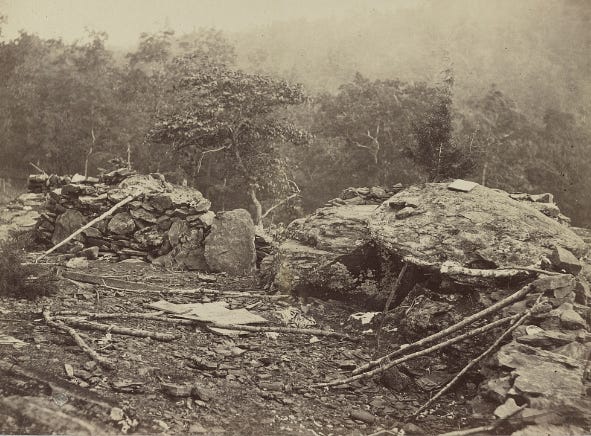a man of good character
It is a good day to think about good men.
Authentic and selfless men.
Men who love their country more than themselves.
Men of good character.

So, we salute Joshua Chamberlain, a college professor from Maine, who, on July 2, 1863, commanded a group of 358 infantry volunteers on the southwest slope of Little Round Top at Gettysburg.
Chamberlain’s men were mostly farmers and lumbermen, with no military training, who had answered Lincoln’s call the year before for more Union troops to battle the Confederates.
And in their year of wartime service, these men had seen heavy action at Antietam, Fredericksburg, and Chancellorsville.
These men stood on the extreme left flank of the Union defensive line, having marched a day and a night to get there.
Holding this position on Little Round Top was critical to the success of the Union effort at Gettysburg.
It was they who protected the rest of the Union line, to the east, from Confederate assault.
But late in the afternoon on July 2, Chamberlain’s men were hit hard.
From Chamberlain’s after-action report:
From that moment began a struggle fierce and bloody beyond any that I have witnessed, and which lasted in all its fury, a full hour.
The two lines [Union and Confederate] met, and broke and mingled in the shock.
At times I saw around me more of the enemy than of my own men.
The edge of conflict swayed to and fro - now one and now the other party holding the contested ground.
Three times our line was forced back, but only to rally and repulse the enemy.
As often as the enemy's line was broken and routed, a new line was unmasked, which advanced with fresh vigor.
In the midst of this struggle, our ammunition [ran out].
The enemy were close upon us with a fresh line, pouring on us a terrible fire.
Half [of our] left wing already lay [wounded] on the field.
Our gallant line writhed & shrunk before the fire it could not repel.
It was too evident that we could maintain the defensive no longer.
As a last, desperate resort, I ordered a charge [down the hill].
The word ‘fix bayonets’ flew from man to man.
The click of the steel seemed to give new zeal to all.
The men dashed forward with a shout.
The enemy's first line scarcely tried to run - they stood amazed, threw down their loaded arms and surrendered in whole companies.
We went into the fight with three hundred & fifty-eight guns.
Our loss is one hundred & thirty-six killed, one hundred & five wounded - many mortally - and one taken prisoner.
Chamberlain had held the line.
His bayonet charge when hope had seemed lost proved to be pivotal to the Union victory at Gettysburg.
Chamberlain was awarded the Medal of Honor for his actions.
There are moments in history when the fate of the nation turns on the acts of one person.

That person’s character makes all the difference.
******************************
I’ll see you tomorrow.
— Brenda
Banner image: Little Round Top (left) and [Big] Round Top, photographed in 1909.


















Share this post